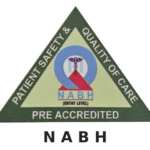Clinical Psychology
Clinical Psychology is a branch of psychology that specializes in the study of brain behavior relationships. A Psychologist is a clinical psychologist who is specially qualified in assessments and treatment of neurological and psychiatric disorders and its rehabilitation. A Psychologist is a person who specializes in the study of mind and behavior or in the treatment of mental, emotional and behavioral disorders. A Psychiatrist is a medical practitioner specializing in the diagnosis and treatment of mental illness. Psychology is one of the most complex fields of medical science. A Psychology Department of Lake city Hospital has a team of renowned and experienced Psychologists and Psychiatrists.

Because psychiatrists are trained medical doctors, they can prescribe medications, and they spend much of their time with patients on medication management as a course of treatment. Psychologists focus extensively on psychotherapy and treating emotional and mental suffering in patients with behavioral intervention.
A neuropsychologist is familiar with medical and neurological issues that pertain to the normal development of the brain in the human life span and injuries caused by trauma like brain injuries, epilepsy (seizure disorder), brain tumor, central nervous system infections, neurodegenerative disorders, movement disorders, memory disorders and psychiatric disorders.
What is a Psychological Assessment?
A psychological assessment is a long in-depth evaluation that is powerful in determining the level of cognitive dysfunction in specific neurological and psychiatric populations. The psychological examination involves tests sensitive to specific brain functions. A comprehensive neurocognitive assessment includes testing of specific lobe functions along with studying the overall integrity of brain functions.
Cognitive areas typically assessed include attention and concentration, learning & memory, language functions, sensory & perceptual functions, visual-spatial functions, and reasoning and problem solving abilities or executive functions and emotional well being.
A comprehensive test battery typically involves a clinical interview along with emotional and behavioral observation and reviewing of medical records. A psychological examination will determine how well the brain is functioning while it is involved in a specific task. A test battery is designed to measure the functions of different lobes of the brain along with information about its overall integrity. Most of the tests involve questions and answers or working with materials that are specific to certain functions of the brain, along with computerized tests. Followed by a comprehensive assessment, the evaluation is collaborated with neurological and medical evaluations with the referring doctor to assist in clinical decision making and a treatment is planned for cognitive and psychological rehabilitation. An evaluation assists in disability determination, and helps with forensic procedures in case of medico-legal implications. Therapies are available for adjustment to disability and behavioral-emotional problems secondary to the neurological or psychiatric disorder.
When does one need a Psychological Assessment?
Comprehensive Clinical Neuropsychological Services offers its services to pediatric, adolescent and adult population alike. A Clinical Neuropsychological Assessment is required for diagnostic purposes and treatment in the form of rehabilitation for specific population with neurological illnesses such as traumatic brain injury, epilepsy, stroke, brain tumor, neurodegenerative disorders like dementia and multiple sclerosis, movement disorders like Parkinson’s disease and other central nervous system disorders. Forensic Neuropsychological assessments are offered for head injuries related to motor vehicular accidents, competency to stand trail, custodial implications and vocational competency.

A psychological assessment is a complex, in-depth, detailed assessment of an individual’s psychological functions comprising of traits, interests and attitudes using standardized procedures akin to a neuropsychological assessment. It involves a detailed clinical interview, objective personality tests, and collaboration with personal, medical and work related history from collateral sources. It is an independent procedure that involves a single or multiple objective tests, and occasionally accompanies a neuropsychological test procedure. It is effective in providing a diagnosis and establishing a treatment plan after assessment.
Apart from its use in medical settings, it also serves the purpose of litigation in court (competency to stand trial, child custody issues and motor vehicular accident implications) and assists in job assessment competency for prospective applicants and employees pursuing career development objectives.
PSYCHOLOGICAL ASSESSMENT AS A THERAPY ADJUNCT
- Usefulness extends in understanding behavioral and emotional fragilities beyond the episodic care
- Assists in clinical decision making and opens a passage for therapeutic healing to begin
- Identifies the most important and vulnerable issues that need to be dealt with
- A comprehensive assessment leads to increased feelings of self awareness and understanding, reduces feelings of isolation with increased self control and motivation to participate in therapy
- From a realistic perspective, it gives individuals an unbiased view of where they stand at that point in time
- Periodic assessments provides means of objectively assessing one’s place in therapy with regard to the benefits gained from the time of its initiation to the time of treatment termination
Clinic Services
Our primary concern is to build a relationship on trust and empathy that allows forward planning based on the most advanced assessment and treatment techniques available.
Our patient care approach is egalitarian and holistic and it is our concern to convey the relevant information and education regarding the cause and management of neuropsychological and psychiatric problems, as we take into confidence the patient and their family members.
Referrals
Referrals are welcome from doctors, medical institutions, corporate houses, non-governmental organizations and legally authorized persons in case of litigation. Self-referrals are also accepted.
Neuropsychological procedures are long and in-depth and a comprehensive assessment requires a minimum of two days. Patients and their families are requested to co-operate with us and book prior appointments.
Neuropsychological & Psychological reports are in accordance with internationally standardized norms and adhere to strict confidentiality. Only information germane to the purpose of the investigation is disclosed in the report, the degree of confidentiality pertaining to established medico-ethical norms. Relevant information is discussed with legitimate professionals for appropriate scientific and professional purposes only. Confidential information may be disclosed only with appropriate consent from the patient or the family, the organization representing a client, or a legally authorized person on behalf of the client in case of litigation.


